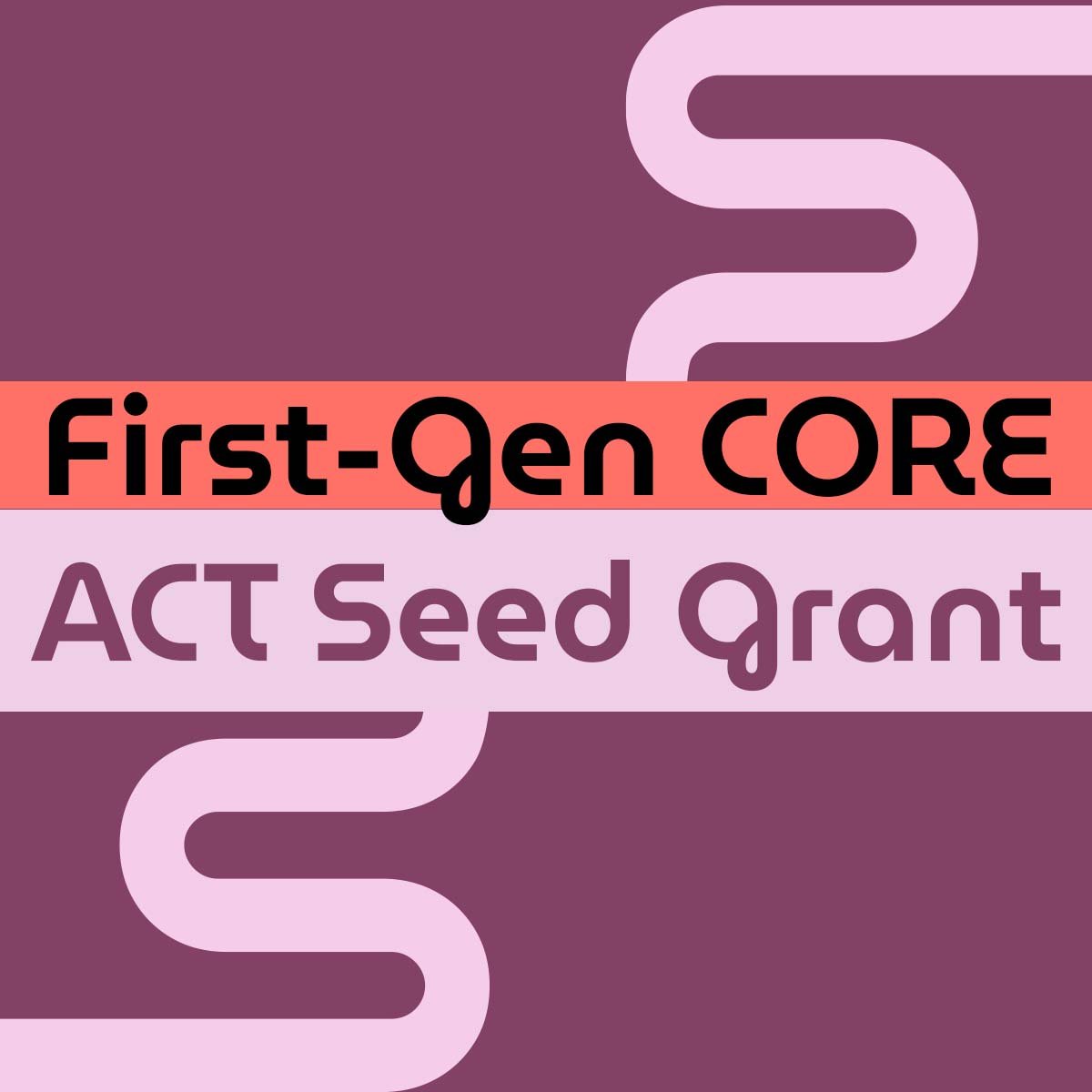First-Generation CORE Project: Cultivating Opportunities, Resources & Equity, led by doctoral student Ana Guadalupe Vielma with faculty support from Dr. Stephanie W. Cawthon, has been selected to receive an Actions that promote Community Transformation (ACT) seed grant from the Vice Provost for Diversity at The University of Texas at Austin.
It is one of just 40 grants awarded to support and enable diversity, equity and inclusion (DEI) projects within local communities at UT Austin and the only one awarded to the College of Education, where Vielma is a doctoral student in the Department of Educational Psychology and Dr. Cawthon is a professor and her doctoral advisor.
The First-Gen CORE Project seeks to build a network of undergraduates who identify as first-generation (first-gen) students and utilize their insight to further develop a growth mindset intervention to reduce the adverse effects of the COVID-19 pandemic, which revealed the depth of systemic barriers that uniquely and disproportionately affect first-gen college students. It is housed at the Texas Center for Equity Promotion, where Dr. Cawthon is an affiliate.
“This grant gives an emerging scholar like Ana the chance to not only to do the much needed work on how universities can best support first-generation students, it is also part of how she will build a community of first-generation scholars, creating a cascading positive effect in the field,” said Dr. Cawthon.
About ACT Grants
The 2021 grants represent more than $180,000 to fund projects supported by units across campus. This group of awardees will hold joint meetings to mutually support the development of these projects, exchange ideas, and maximize their impact.
“We received a wide range of inspiring proposals. This program was created around the idea that change requires creative thinking and that campus members understand the unique needs of their local campus environments more than anyone,” said Lydia Contreras, managing director of diversity at UT Austin, in an announcement from the Provost’s Office.
ACT project leaders will also participate in a campus-wide DEI Community Fair on Tuesday, November 16, at 3:30 to 5pm in the Calhoun and Parlin outdoor courtyards. In celebration of DEI work across campus, the fair will feature posters on display showcasing ACT projects.
About the First-Gen CORE Project
The First-Generation CORE Project has three main objectives:
-
To further understand and gain insight into the lived experiences of first-gen college students.
-
To expand and implement an existing mindset intervention related to positive psychological outcomes such as resilience.
-
To establish a research team of first-gen undergraduates interested in promoting equity and success through future projects.
Despite first-gen college students making up approximately one-third of the student population in American universities, higher education policies and practices often fail to directly meet these students’ academic, social, and financial needs (Forrest Cataldi et al., 2018).
As the first in their family to attend college, first-gen students experience distinct challenges and additional unseen barriers when transitioning into higher education. They are more likely to identify as low-income, students of color or minorities, work full time while enrolled in courses, and receive less financial aid than their continuing-generation counterparts (Engle & Tinto, 2008).
The impact of COVID-19 on first-gen college students has been significant: they were more likely to be worried about their financial situation over the past year, be impacted by a lack of flexibility in their courses, and not having a specific area to work (Gillis & Krull, 2020). They had increased the mental distress, anxiety, depression, and coursework-related stress of first-gen students than non-first-gen students (Jeong et al., 2021; Keyserlingk et al., 2021). Furthermore, first-gen students were more likely to have other caregiving responsibilities, less likely to have health insurance, and reported the transition to online learning as more complex than their peers (Barber et al., 2021).
Vielma, the doctoral student lead for this project, is herself a first-gen student. A McNair Scholar and a Hispanic Scholarship Fund Scholar, Vielma seeks in her work to apply interventions from previous studies on the positive effects of metacognitive strategies and mindset interventions in reducing negative psychological consequences in first-generation students. These approaches can create positive effects such as an increase in academic achievement and a sense of belonging in underrepresented students (Broda, Yun, Scheider, Yeager, et al., 2018; Robinson, 2017).
Her previous work explored the potential impact of online mindset interventions on the issue of financial stress, both prior to COVID-19 and during the 2020-21 academic year. The process and outcomes of these two studies indicated that (a) the online intervention tool may not be robust enough to create a change in mindset needed in the face of extreme stressors and (b) the COVID-19 pandemic further revealed the depth of systemic barriers that uniquely and disproportionately affect first-generation students. This project responds to this call for deeper consideration of the intervention tool and what first-gen students need as they face these systemic barriers.
A total of 10 first-generation undergraduate students recruited from UT Austin campus will serve as the research team and pilot group. An external panel of experts from UT Austin and the field at large will be recruited to support the finalization of project outputs.
The project will use three metrics for evaluation: a survey of research team participants, cognitive labs of intervention use, and structured interview review by external panelists. The results of the pilot will also be informative in understanding the possible impact of the revised intervention on financial stress.
